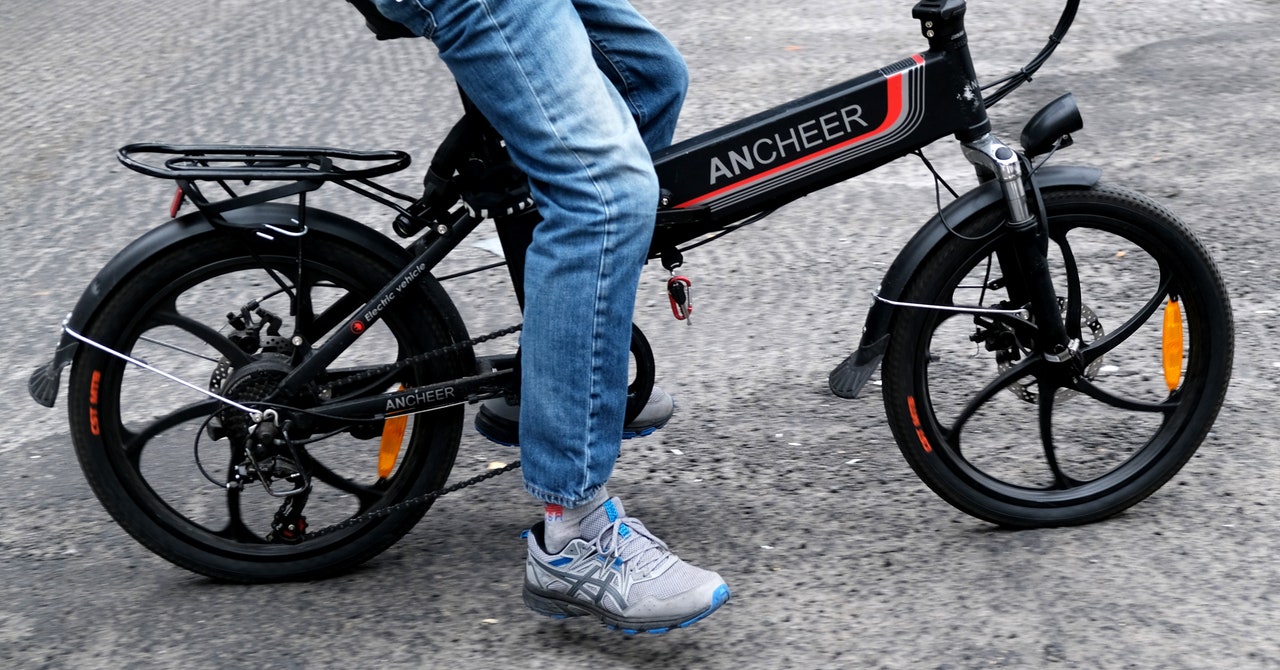Review sản phẩm
Quy định nhập khẩu mới của Biden sẽ ảnh hưởng đến pin xe đạp điện liệu!
Giới thiệu Biden’s New Import Rules Will Hit Ebike Batteries Too
Các quy tắc nhập khẩu mới của Biden sẽ ảnh hưởng đến cả pin xe điện điện đạp
Quy định nhập khẩu mới của Biden sẽ ảnh hưởng đến pin xe đạp điện tại Queen Mobile #QueenMobile #ĐánhGiáSảnPhẩm #MuaNgay #PinXeĐạpĐiện #Biden #QuyĐịnhNhậpKhẩu #ChấtLượngCao #ĐảmBảoChấtLượng #UyTín #TiệnLợi #AnToàn #TinCậy
QUEEN MOBILE chuyên cung cấp điện thoại Iphone, máy tính bảng Ipad, đồng hồ Smartwatch và các phụ kiện APPLE và các giải pháp điện tử và nhà thông minh. Queen Mobile rất hân hạnh được phục vụ quý khách….
_____________________________________________________
Mua #Điện_thoại #iphone #ipad #macbook #samsung #xiaomi #poco #oppo #snapdragon giá tốt, hãy ghé [𝑸𝑼𝑬𝑬𝑵 𝑴𝑶𝑩𝑰𝑳𝑬] ✿ 149 Hòa Bình, phường Hiệp Tân, quận Tân Phú, TP HCM
✿ 402B, Hai Bà Trưng, P Tân Định, Q 1, HCM
✿ 287 đường 3/2 P 10, Q 10, HCM
Hotline (miễn phí) 19003190
Thu cũ đổi mới
Rẻ hơn hoàn tiền
Góp 0%
Thời gian làm việc: 9h – 21h.
KẾT LUẬN
Theo các quy định nhập khẩu mới của Biden, viện trợ điện đạp (ebike) cũng sẽ bị ảnh hưởng. Điều này có thể ảnh hưởng đến người mua ở Mỹ vì giá cả có thể tăng cao sau khi thực hiện quy định này. Hãy nhanh tay mua ngay trước khi thay đổi này có hiệu lực để tránh tăng giá đáng kể cho sản phẩm của mình.
Last week, the Biden administration announced it would levy dramatic new tariffs on electric vehicles, electric vehicle batteries, and battery components imported into the United States from China. The move kicked off another round of global debate on how best to push the transportation industry toward an emissions-free future, and how global automotive manufacturers outside of China should compete with the Asian country’s well-engineered and low-cost car options.
But what is an electric vehicle exactly? China has dominated bicycle manufacturing, too; it was responsible for some 80 percent of US bicycle imports in 2021, according to one report. In cycling circles, the US’s new trade policies have raised questions about how much bicycle companies will have to pay to get Chinese-made bicycles and components into the US, and whether any new costs will get passed on to US customers.
On Wednesday, the Office of the United States Trade Representative—the US agency that creates trade policy—clarified that ebike batteries would be affected by the new policy, too.
In a written statement, Angela Perez, a spokesperson for the USTR, said that ebike batteries imported from China on their own will be subject to new tariffs of 25 percent in 2026, up from 7.5 percent.
But it’s unclear whether imported complete ebikes, as well as other cycling products including children’s bicycles and bicycle trailers, might be affected by new US trade policies. These products have technically been subject to 25 percent tariffs since the Trump administration. But US trade officials have consistently used exclusions to waive tariffs for many of those cycling products. The latest round of exclusions are set to expire at the end of this month.
Perez, the USTR spokesperson, said the future of tariff exclusions related to bicycles would be “addressed in the coming days.”
If the administration does not extend tariff exclusions for some Chinese-made bicycle products, “it will not help adoption” of ebikes, says Matt Moore, the head of policy at the bicycle advocacy group PeopleForBikes. Following the announcement of additional tariffs on Chinese products earlier this month, PeopleForBikes urged its members to contact local representatives and advocate for an extension of the tariff exclusions. The group estimates tariff exclusions have saved the bike industry more than $130 million since 2018. It’s hard to pinpoint how much this has saved bicycle buyers, but in general, Moore says, companies that pay higher “landed costs”—that is, the cost of the product to get from the factory floor to an owner’s home—raise prices to cover their margins.
The tariff tussle comes as the US is in the midst of an extended electric bicycle boom. US sales of ebikes peaked in 2022 at $903 million, up from $240 million in 2019, according to Circana’s Retail Tracking Service. Sales spiked as Americans looked for ways to get active and take advantage of the pandemic era’s empty streets. Ebike sales fell last year, but have ticked up by 4 percent since the start of 2024, according to Circana.
In the US, climate-conscious state and local governments have started to think more seriously about subsidizing electric bicycles in the way they have electric autos. States including Colorado and Hawaii give rebates to income-qualified residents. Ebike rebate programs in Denver and Connecticut were so popular among cyclists that they ran out of funding in days.
A paper published last year by researchers with the University of California, Davis, suggests these sorts of programs might work. It found that people who used local and state rebate programs to buy ebikes reported bicycling more after their purchases. Almost 40 percent of respondents said they replaced at least one weekly car trip with their ebike in the long-term—the kind of shift that could put a noticeable dent in carbon emissions.



